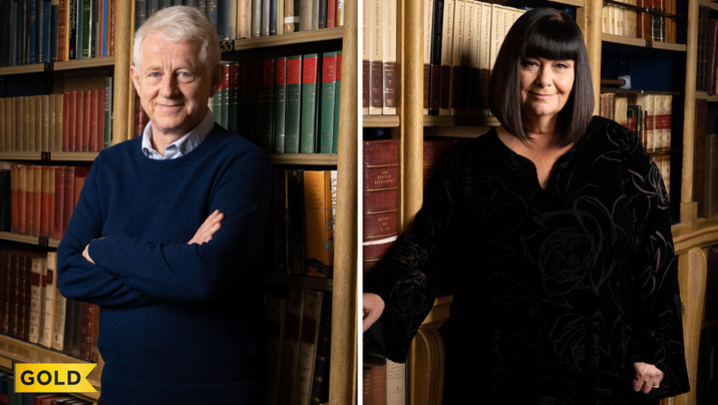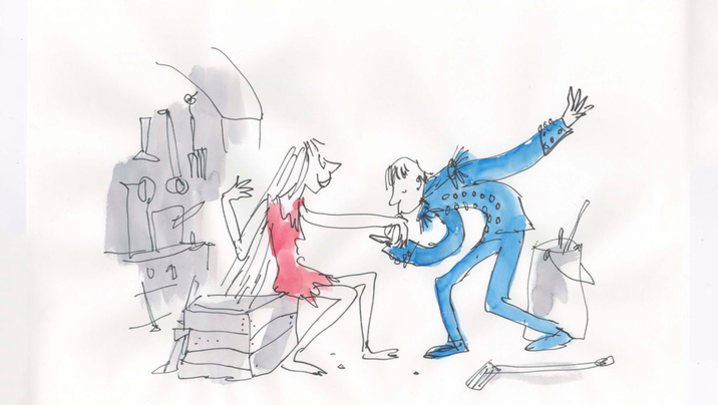Environmental programming doesn’t have to be “boring, didactic or terrifying – it can be funny, interesting, educational and personal”.
Richard Curtis was speaking at an event, hosted by the RTS, which looked at how environmental issues can be addressed in TV comedy and drama.
Curtis enjoyed huge TV success, penning Blackadder, Mr Bean and The Vicar of Dibley before moving into film and writing the hit romantic comedies Notting Hill and Bridget Jones’s Diary.
“One of the things I’ve come away from lockdown thinking is how much that things that seemed on the side are now central to general conversation. In my house the big subjects during lockdown were…diversity, racism, feminism and the climate,” he said.
Curtis pointed to recent research commissioned by the environmental charity Global Action Plan, of which he is a patron, which shows more than three quarters of young people in the UK want to see TV drama address environmental issues.
The early October event was coordinated by Global Action Plan and supported by Albert, Bafta’s TV and film body on environmental sustainability.
“We’ve not passed the need to educate because that’s always there…but, in a way, this is the moment for drama to take over,” said Curtis, who was talking to Global Action Plan Chair Jeremy Oppenheim.
Curtis namechecked a few of his favourite environmental dramas, including1985 BBC thriller Edge of Darkness, Steven Soderbergh biopic Erin Brockovich and recent Sky Atlantic drama Chernobyl.
But he argued that environmental drama needn’t be apocalyptic: “The show I’d like to see back is The Good Life, a [BBC] TV programme about people trying to do the right thing environmentally, and what a struggle and how comical it was.
“There is a sort of ordinariness about the environmental battle, which is there in our day-to-day lives.
“At every level, in our business, domestic and political lives, the environment is a big old theme. I don’t think [a drama] always has to end in a nuclear explosion.
“We should remind ourselves of how wide [environmental] issues are. It’s deforestation, water, plastics, fish, animals, recycling, energy – it doesn’t always have to be a cataclysmic breaking of he ozone layer, as entertaining as that might be.”
Curtis offered advice to the five finalists – Georgia Wagstaff, Bethan Moore, Sophie Marsh, Jack Stanley and Amy Harris – of Global Action Plan’s “Flickers of the Future” film competition.
Young film-makers had been asked to create a human story of a sustainable future, rather than the all-too-frequent on-screen portrayal of the future as unremittingly bleak. The finalists will get the opportunity to pitch their ideas to UK broadcasters.
Curtis said: “As a film-maker, practice young but write what you’re passionate about, rather than what you think you ought to address.”
He elaborated: “Start as you mean to continue. My funny career has gone from writing short sketches and then I used that skill to do a sitcom, and now my films use the same skill.
“If you are interested in the environment, start now. See whether you can make it interesting in a short film – don’t put if off.
“The other thing and it’s always my advice to young film-makers is look at your own experience and life. The big secret of writing is to write stuff that’s interesting to you and moves you.”
“When I started writing on Not the Nine O’Clock News, we were given a list of things that were funny – British Rail sandwiches, trade unions. I didn’t think any of them were funny so I wrote what I thought was funny.”
‘Making a drama out of a crisis’ was held on 1 October, and produced by the RTS, IJPR and Global Action Plan. A longer report will appear in the October issue of Television.




